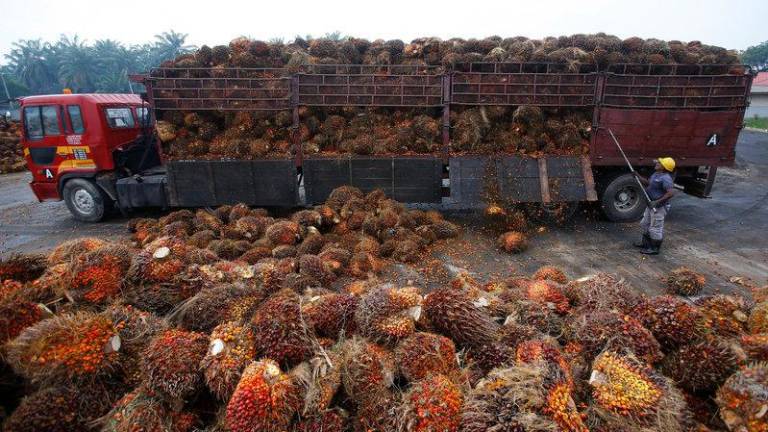KUALA LUMPUR: Malaysian palm oil futures rose on Thursday, recovering from four straight sessions of declines to a near two-month low in the previous session, on expectations of slowing monthly production.
The benchmark palm oil contract for May delivery on the Bursa Malaysia Derivatives Exchange was up 0.8 percent at 2,149 ringgit ($528.14) a tonne at the midday break.
Palm had slumped 2.5 percent in intraday trade on Wednesday to 2,129 ringgit, its weakest level since Dec. 31.
The vegetable oil has declined 6.5 percent so far this month, in what could be its biggest fall since November 2017. “The selloff was too deep yesterday,“ said a Kuala Lumpur-based futures trader while explaining why palm prices trended upward in Thursday’s first-half trade.
“But I think it will recover fast, I’m hearing that February’s full month production will be down (from the previous month) by 7-10 percent.”
Palm oil output usually declines on a monthly basis in the first quarter of the year, but traders said February output could be higher than a year earlier.
Data from industry regulator the Malaysian Palm Oil Board showed production in January fell 3.9 percent on month to 1.74 million tonnes.
The board is scheduled to release February data on March 11.
Cargo surveyors Intertek Testing Services and AmSpec Agri Malaysia reported on Thursday that exports in February declined 14.5-15.2 percent from the previous month.
In other related oils, the Chicago March soybean oil contract was last up 0.2 percent.
The May soyoil contract on the Dalian Commodity Exchange gained 0.3 percent and the Dalian May palm oil contract was down 0.5 percent.
Palm oil prices are affected by movements in soyoil, as they compete for a share in the global vegetable oil market.
Palm oil may bounce to 2,177 ringgit per tonne, as it has stabilised around a support at 2,130 ringgit, said Wang Tao, a Reuters market analyst for commodities and energy technicals.










